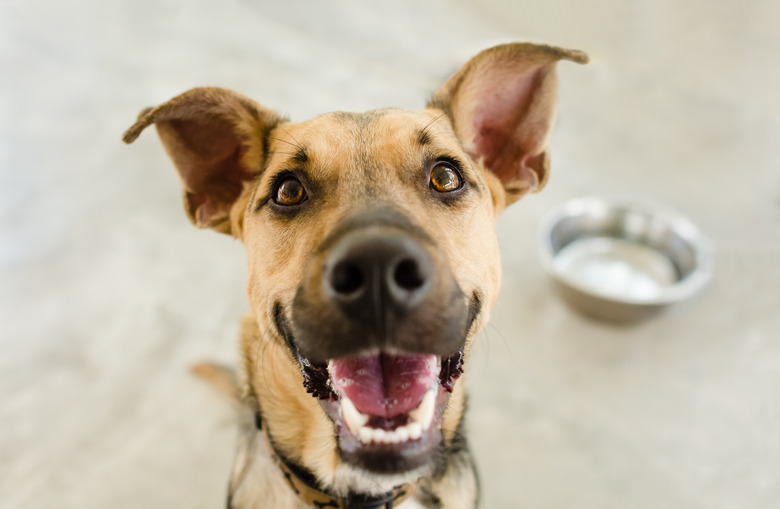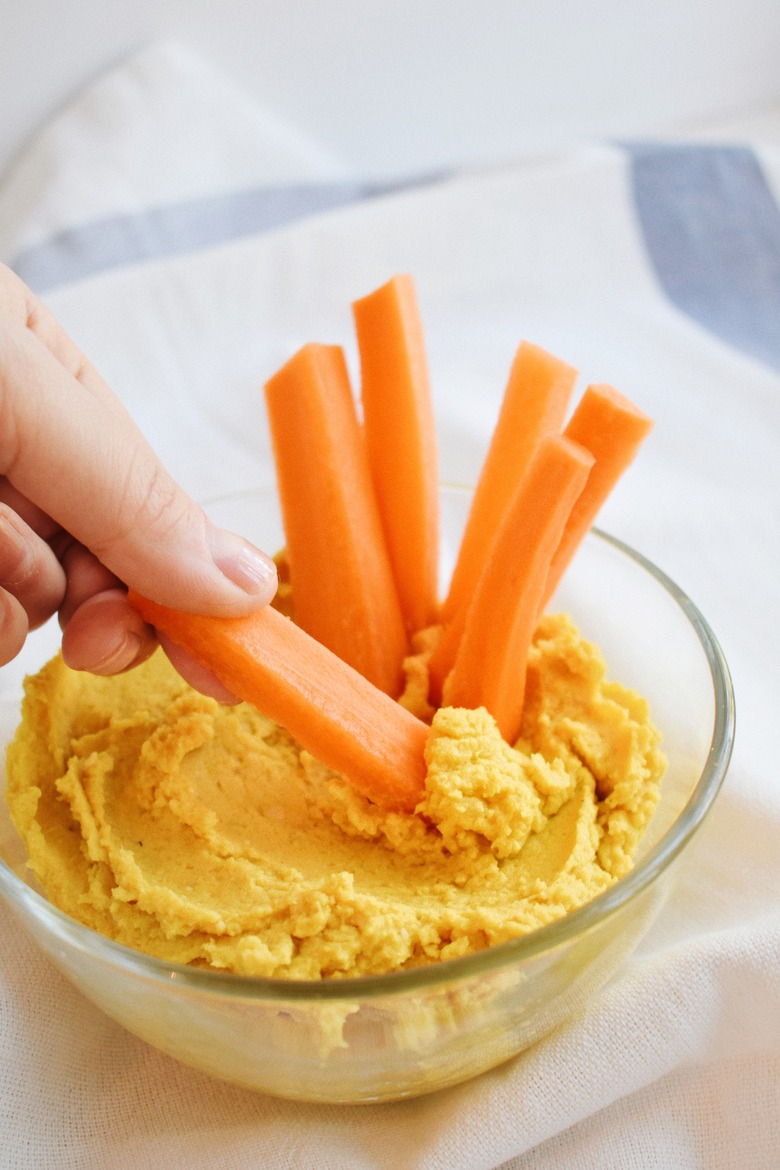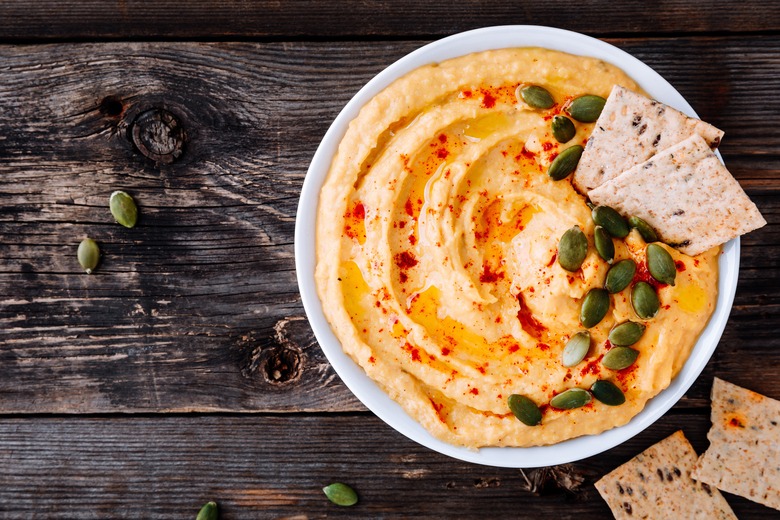Can Dogs Have Hummus?
Mmm... hummus. What would life be without this creamy and delicious treat that seems to go well on pita bread, bagels, salads, carrot sticks, and just about everything else in your pantry?
While you can't imagine life without this yummy Middle Eastern treat, you often wonder: Is it OK to share with your dog? After all, it seems healthy and you're sure they'd enjoy it, too. Here's the scoop on whether or not your dog can eat hummus.
Where does hummus come from?
Where does hummus come from?
Hummus was invented in the Middle East, though it's not clear exactly where. There are mentions of hummus in the Bible, and countries like Lebanon, Turkey, Israel, and Syria have attempted to claim it as their own. Either way, it's a uniquely Middle Eastern food that has made its way around the world, and popularized in America by the brand Sabra. Today, you can buy all kinds of hummus, from red pepper to lemon-garlic to even dessert hummus, which comes in sweet flavors like chocolate.
Can dogs eat hummus?
What are the concerns with feeding hummus to dogs?
What are the concerns with feeding hummus to dogs?
There are many concerns when it comes to feeding hummus to dogs. Even if you eat plain hummus, there are still ingredients in there, such as onions, garlic, and a lot of oil, that are not good for your dog. Onion and garlic are poisonous to dogs and they can cause gastrointestinal irritation, vomiting, and/or diarrhea.
While small amounts of olive oil are safe for your dog—and may even be beneficial to his health, skin and coat—hummus is packed with oil and it may be too much for your dog to handle.
If you buy a fancier hummus, like one containing lemon, red pepper, or the Middle Eastern spice s'chug, these ingredients can hurt your dog's stomach and cause even more health issues.
Conclusion
Conclusion
Instead of giving your dog hummus, you can feed him straight up mashed chickpeas. Fortunately, chickpeas/garbanzo beans are a plant-based protein that also contain iron, fiber, and phosphorous. They are a good source of Vitamin K, zinc, copper, choline, Vitamin B6, and magnesium.
When you make your chickpea mash, mix in a little bit of olive oil for some added health benefits (avoid peanut oil or canola oil in case your dog is allergic or can't handle them), and feel free to serve the chickpea mash with some vegetables that are safe for pups. Veggies like carrots, beets, cauliflower, celery, and green beans come highly recommended. Along with being good for your dog's system, the chewier veggies can help your dog develop stronger teeth. For more ideas, check out our list of everything your dog can and cannot eat.
Dogs cannot eat hummus, but that doesn't mean you can't still enjoy it. Just remember to keep dogs out of contact with hummus when you're eating it; don't let them lick your plate or bowl after you've had it for a meal. If your dog does come into contact with it and seems like he's not feeling well, take him to the vet immediately for evaluation. There, your veterinarian may put your dog on a medicine and/or a strict diet of boiled chicken and plain rice until he feels better.
Always check with your veterinarian before changing your pet's diet, medication, or physical activity routines. This information is not a substitute for a vet's opinion.


